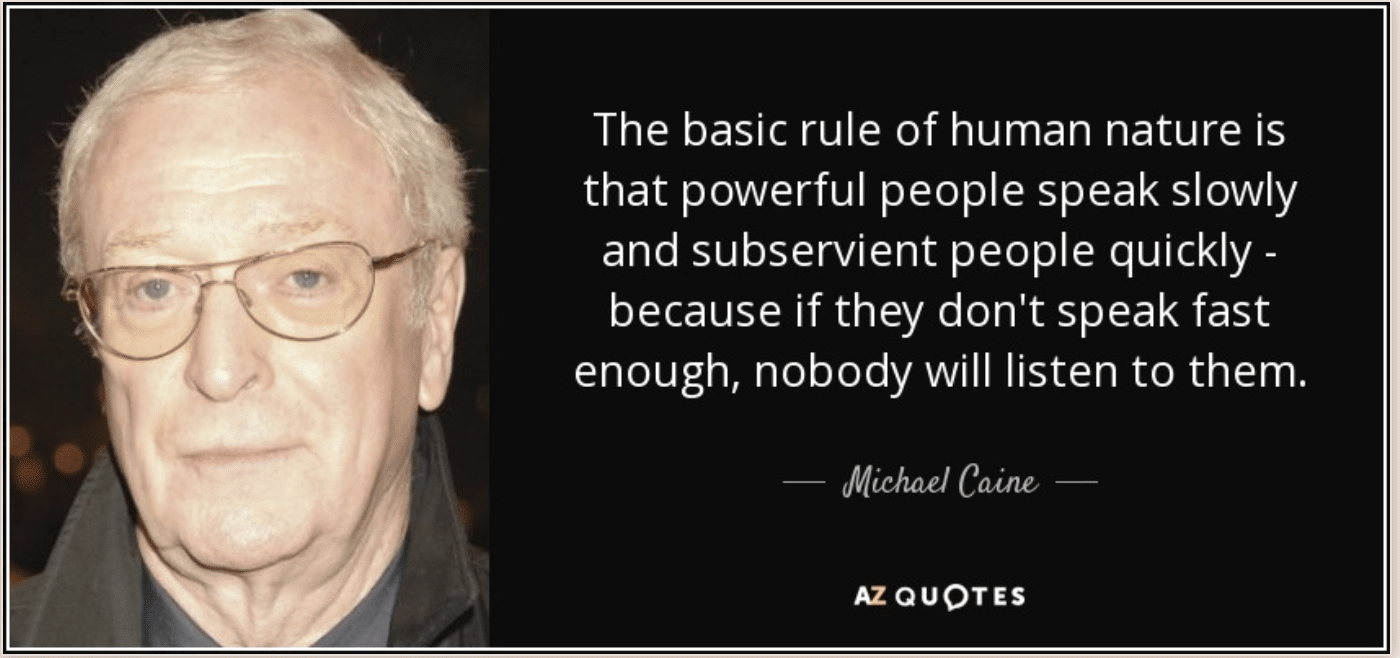Ten Tips for Sounding More Authoritative When Speaking
My views on how people should sound in a media interview or during a presentation are based on 25 years of broadcasting and 20 years of coaching. When I coach, we nearly always use filming and playback, so that the person being coached can decide for themselves if they like the results. I highly recommend this to anyone trying to improve working on their own.
From this experience, I have distilled these ten top tips:
1. Slow down. More than half the people I train, speak way too fast when making presentations or delivering a media interview. It can be hard to slow down, but the best way to learn is to record yourself and playback – focus on ‘how slow can you go’ and then see what it sounds like. Understand it will feel odd, but listen back and then make your judgement. It took me a very long time to learn this myself.

2. Learn to pause. This is related to slowing down, but in fact, is much easier than learning to speak slowly. Pausing shows confidence but it also gives you thinking time.
3. Avoid smiling too much. Smiling is good, too much smiling undermines authority. If you sound too cheery, try being deliberately ‘grumpy’. Again, film and playback, see what you think works best. Often acting as a bit grumpy, doesn’t come across as grumpy, just more certain.
4. Lower your voice. This is more controversial, as I would not recommend anyone go to the lengths that Margaret Thatcher did. However, if your voice is high you may sound like a lightweight. Often the intention to lower is all that is needed. Again, the real learning comes if you record your presentation or mock interview and playback.
6. Top tip from my colleague Eric Dixon is, engage with your content. There is a huge difference between parroting it and acting it. Take responsibility for how much of what you’re saying the audience hears and processes…that is down to you the speaker. If you don’t care about the content, this is hard to do.
7. Have evidence for what you are saying. Just adding three numbers to a message can make it sound more authoritative. Evidence can be facts and numbers or anecdote. Bold claims without evidence lack credibility.
8. Make eye contact with the audience or whoever you are speaking to. In a TV interview there are rules about where to look: if the interviewer is with you then look at them not the camera. If the interviewer is elsewhere it is what is called a ‘down-the-line’ interview, and you must look straight down the barrel of the camera. In a presentation you want to make eye contact with everyone in the room equally. If it is a large audience, trace across the audience with a pattern of an M or a W. This helps to address the whole audience and not just the front row.
9. Listen more, say less. In conversation, the most authoritative person in the room is often the person who says the least. Listening respectfully and attentively will give you power. Asking clear, short, probing follow-up questions gives you more power.
10. Don’t fiddle with anything. If you are doing an interview or a presentation you may be nervous, and nerves can make you fiddle. Again, watching a video of yourself performing will tell you what those habits are. Understand you are pulling your ear, flicking your hair, or fiddling with change in the pocket, to comfort yourself. Once you become aware of it, it should be easy to stop.
What did I miss?
- Media Savvy Operators Know How to Place a Quote - May 21, 2024
- The Magic of Performance - May 14, 2024
- Our Top Tips: - May 8, 2024




Really useful tips